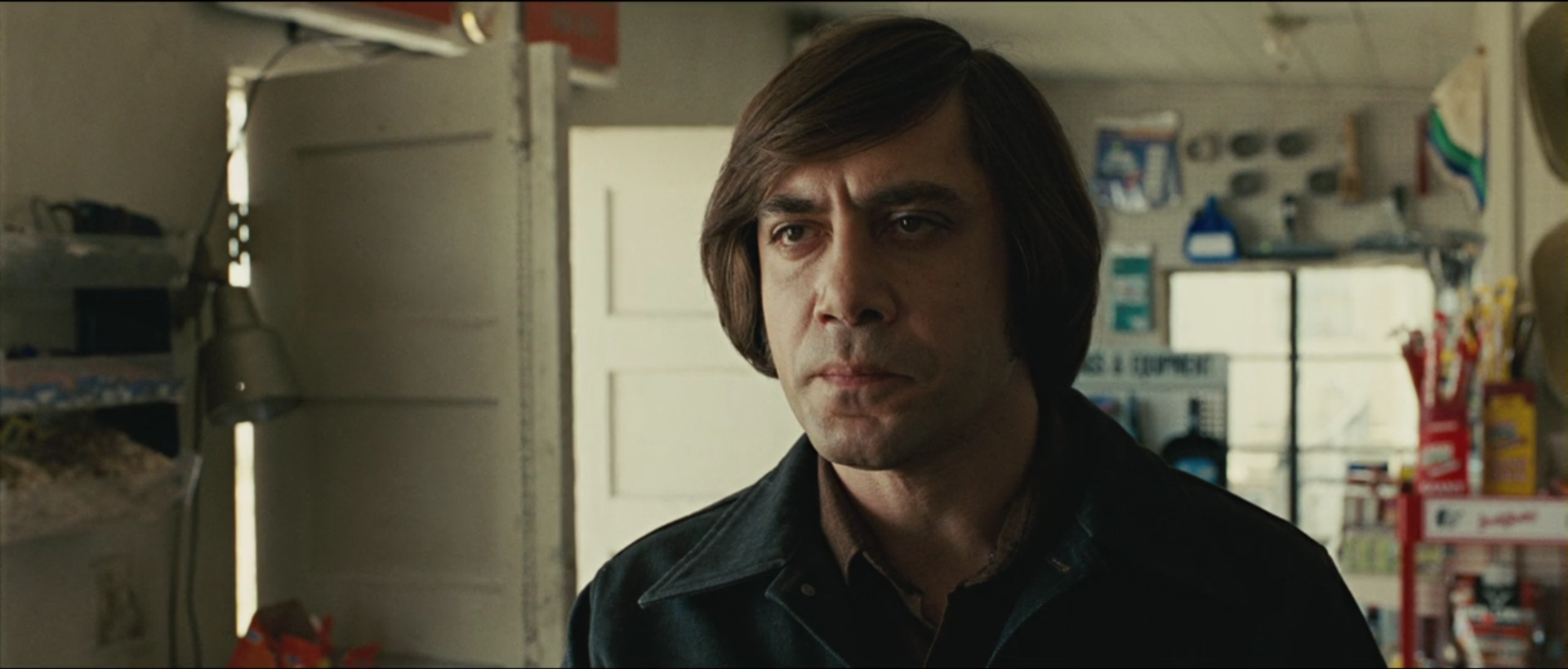Opening Statement
by Sarah Gorr, December 5, 2016
The central question of No Country for Old Men, the distant star around which the rest of the film orbits, is simple: “What’s the most you ever lost in a coin toss?” Or more plainly, what have you lost to chance? Chance, fate, and destiny all intertwine in the Coen brothers’ 2007 masterpiece, and to be clear, that is exactly what I think this movie is: a masterpiece. And I’m hardly alone. At almost 10 years old, the film has proven to be one of the most lauded and loved of the 2000s, snagging two Golden Globes, two SAG awards, three BAFTAs, and four Academy Awards including Best Picture.
The team assembled to bring Cormac McCarthy’s 2005 novel of the same name to life on screen is staggering in its perfection. The Coens, in what was an unusual move for them, remained doggedly faithful to the book in their screenplay, only tweaking subtly here and there, trimming slightly, but leaving the meat of the book completely intact. Yet the script never feels bogged down and their creativity never seems restricted as McCarthy’s words play out. Tommy Lee Jones and Josh Brolin seemed born to play the ill-fated Texans, and Javier Bardem has secured his place in film history as Anton Chigurgh, a role that’s already been called out as one of cinema’s best by the likes of Empire magazine. Add to all that Roger Deakins (Fargo, Skyfall) as cinematographer, and neither death nor West Texas have ever looked so stunningly beautiful.
Viewers are treated to long, loving shots of wide open plains that meet radiant skies painted every possible color from a pure, cloudless blue to streaks of pink and purple at sunset to the orange and blue of the sunrise that bisects the sky. In brilliant contrast, the endless beauty of the landscape is broken only by men and the terrible violence they wreak.
The film is an interesting intersection of Western, film noir, and Hitchcockian thriller. Ostensibly, the story follows Llewellyn Moss as he stumbles upon the aftermath of a drug deal gone bad and finds himself the sole proprietor of a two million dollar windfall. He’s then forced on the run as an assortment of violent parties, including psychopath Anton Chigurh, follow hot on his trail in search of the stolen cash. But the money doesn’t really matter in No Country. Where it ends up and who wants it simply provide a convenient impetus to explore questions of morality and philosophy.
Even seeing the movie half a dozen times, including rewatching it just an hour before beginning to write this essay, it’s still easy to forget where the money lands in the end. It simply isn’t important. Instead, the film leaves you ruminating on what in the world it all means. What role does fate have in our lives? What does it mean to be a man in America? How can law and order operate in an increasingly violent world?
In this way, the film is of a piece with some of the Coen’s earlier work, most notably Blood Simple and Fargo—two more films that force audiences to watch simple misunderstandings and mistakes snowball into tremendous violence. But it’s also the logical continuation of the themes McCarthy explores in his famous and celebrated Border Trilogy (All the Pretty Horses, The Crossing, and Cities of the Plain)—three novels that depict the cowboy lifestyle in Mexico and west Texas in the 1950s, long after that lifestyle is imagined to have died out. One can almost imagine The Crossing’s young Billy Parham growing old into Sheriff Ed Tom Bell (Tommy Lee Jones), shaking his head at young ‘80s punks, bewildered by the scope and scale of Chigurh’s crimes. In looking at the four books altogether, McCarthy himself seems to share the same existential fears as Bell.
His nostalgia for the West consistently butts heads with his acknowledgement that the world has always been a place where the capacity for evil and violence can thrive. He’s never been one to shy away from the harsh and disturbing realities of the past, a fact that anyone who’s read Blood Meridian, one of the author’s most gruesome and punishing books, can readily confirm. This makes his subject matter in No Country a uniquely perfect fit for the Coens, who have always shown a keen interest in the banal and ordinary beginnings of tremendous violence. They understand how ordinary the motives and reasons behind even the most heinous crimes can be.
Together, they’ve created one of the quintessential movies of the last decade with No Country for Old Men. Here's what you'll see this week:
- The Cinessential Podcast, Episode 5
- A deeper discussion of the film's relationship with violence
- A look back at the 80th Academy Awards
- Related Review of another Cormac McCarthy adaptation, The Road
- And more!


